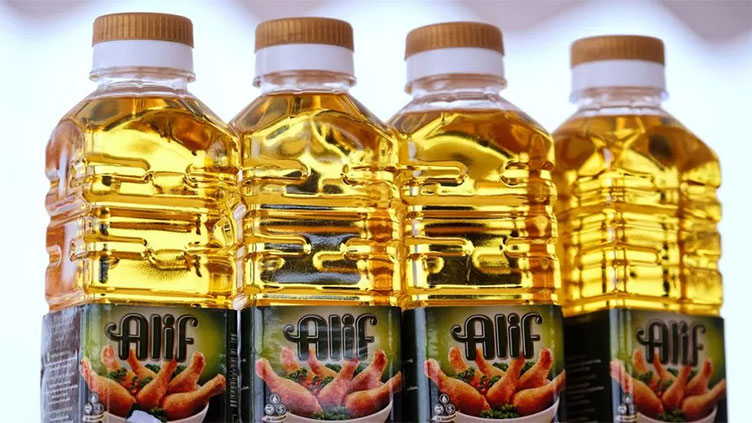Lab-grown alternatives aim to cut palm oil dependence

Business
Palm oil remains the world's most-produced vegetable oil
(Web Desk) - It was landing at Singapore's international airport a decade ago that sparked Shara Ticku's idea to create a lab-grown alternative to palm oil.
"In 2013 I flew to Singapore, and when I landed I had to wear a mask," says the boss of US tech firm C16 Biosciences. "The air was toxic because they were burning the rainforest in Indonesia."
Indonesian farmers, who were clearing land for palm oil and other crops, were blamed for the fires and the smoke that drifted across the sea to Singapore.
Fast forward to today, and her business has just commercially released an alternative to palm oil that is created from yeast cells.
Palm oil remains the world's most-produced vegetable oil, accounting for 40% of the total, according to the World Wide Fund for Nature (WWF).
It is supremely popular with food and cosmetics firms because it is so useful. Odourless, tasteless and colourless, it doesn't alter the smell, taste or look of products.
Instead it adds a smooth texture, and works as a natural preservative. And it maintains its properties under high temperatures, also making it ideal for cooking with.
In fact it is so widely used, that palm oil or its derivatives are found in almost half of all products on supermarket shelves, according to the WWF. This includes everything from chocolate, to shampoo, pizza, toothpaste, and deodorant.
"No matter how hard you try, every single person touches palm oil everyday," says Ms Ticku. "It is in everything."
The widely-documented problem with this usage is that this demand for palm oil has led to significant deforestation in areas where oil palm trees can grow - low-lying, hot, wet areas near the equator.
The use of this land for palm oil cultivation, 85% of which is in Indonesia and Malaysia, has increased almost nine-fold from 3.3 million hectares (eight million acres) in 1970 to 28.7 million hectares in 2020.
In financial terms, one report valued the worldwide palm oil industry at $62.3bn (£51.2bn) in 2021. And such is the continuing growth in demand, this figure is expected to increase to $75.7bn by 2028.
To try to reduce the world's reliance on palm oil, Ms Ticku, who was formerly an investment banker, and her co-founders set up C16 Biosciences in New York City in 2018. Backed by multi-million dollar funding from Microsoft founder Bill Gates, the company has spent the past four years developing and finessing their product, which is called Palmless.
They grow a strain of yeast that naturally produces an oil with very similar properties to palm, which they harvest. The yeast is fed on sugars from sugar cane plants grown on land already used for arable farming.
"Our process takes less than seven days from start to finish," says a spokeswoman for C16 Biosciences. "For a traditional oil palm tree, the oil wouldn't be ready to harvest until years after the seed is planted, and most trees don't reach peak production until seven years later."
She adds that the company is now "actively collaborating on partnerships in the beauty and home categories - for example, moisturisers, nourishing oils, soaps and cancels". "[And] we plan to enter into food in 2024."
Another reason for the continuing popularity of palm oil is that it is very productive.
"You get so much more oil per hectare [from oil palms] than any other oil crop," says Chris Chuck, professor of bioprocess engineering at the University of Bath. "Oil palms produce about 5,000 kg [of oil] per hectare per year, rapeseed about 1,000 kg per hectare per year, and soybean 400 kg per hectare per year."

